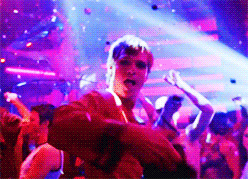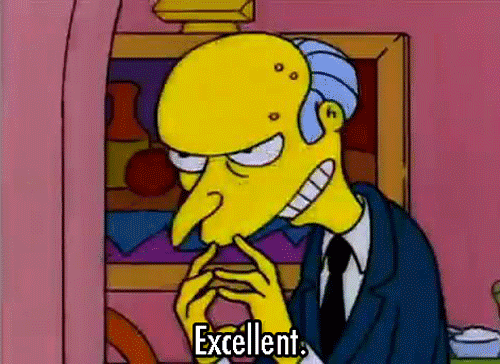If you’ve ever been to a Pride March, then you’ll understand why we consider this annual celebration of all things queer to be “gay Christmas.” Everything is covered in glitter, nobody feels judged, and everyone is a good dancer (yes, even we lesbians too, okay?) Can you imagine if the whole world were like this every day? Literally nothing could be happier.

The Monday morning tragedy of realizing life is no longer like a fabulous episode of Queer as Folk manifests in multiple layers. LGBTQ individuals wake up to a world that is not only a lot less colorful and chiseled, but a world that is a lot less safe and tolerant. Walking around the day of Pride surrounded by rainbow everything and same-sex couples holding hands is an experience of solidarity and safety that is so lamentably absent from everyday life. It’s the one day that I don’t feel like everyone I pass notices that I’m holding hands with a girl, and it’s the one day that we truly celebrate people in all their forms.
So why isn’t every day like Pride? Why do we feel that we should confine the fullest expression of our identities to just one day?
It’s because tolerance is conditional.
The tradition of setting aside a day for LGBTQ folks to rally, party, and reflect in honor and remembrance of the Stonewall Riots is vital for celebrating how far the gay rights movement has come. However, it also makes us saliently aware that this fabricated reality isn’t representative of everyday freedoms. Every other day, we’re supposed to suppress our LGBTQ identities in an effort to protect ourselves, blend in. And this, in part, is because people only fully accept those outside of the norm when they try to conform to societal standards.
After all, where has the gay rights movement been focused? MARRIAGE EQUALITY. I take issue with this emphasis both politically and socially. Politically speaking, this emphasis seems like just another effort to encourage conformity to patriarchal systems. The idea that marriage is the institution that gives relationships validity—not to mention rights—sounds like yet another way for the government to control who receives rights and when.

Socially, however, my issues lie with when, where, and why heterosexual people breeders join the gay rights movement. Malcolm Gladwell articulated this issue absolutely beautifully in a recent interview as a part of the LIVE from the NYPL series:
“What we call tolerance in this country is when people who are unlike us want to be like us, and when we decide to accept someone who is not like us and wants to be like us, we pat ourselves on the back…
Sorry — you don’t get points for accepting someone who wants to be just like you. You get points for accepting someone who doesn’t want to be like you — that’s where the difficulty lies.”
Yes, I want the freedom to marry a woman one day. BUT, I deserve rights, respect, and equality regardless of whether I want to marry and regardless of the identities that might prevent me from such a marriage. This is the challenge of accepting people who really do lie outside of societal norms.
So yes, I love Pride. I love the flashy displays and the insane costumes and, yes, the go-go dancers. And if it weren’t for the occasional AIDS awareness or political activist banner, you may even forget for a moment that you’re among one of the most marginalized groups of people in the entire world. There’s still a long way to go.
Pride is comparable to safe spaces for people of color. They’re awesome and totally necessary, but we need to critically examine why they need to exist and how we can integrate their existence into the greater social culture.
I mean, does this not look like a perfect world?
